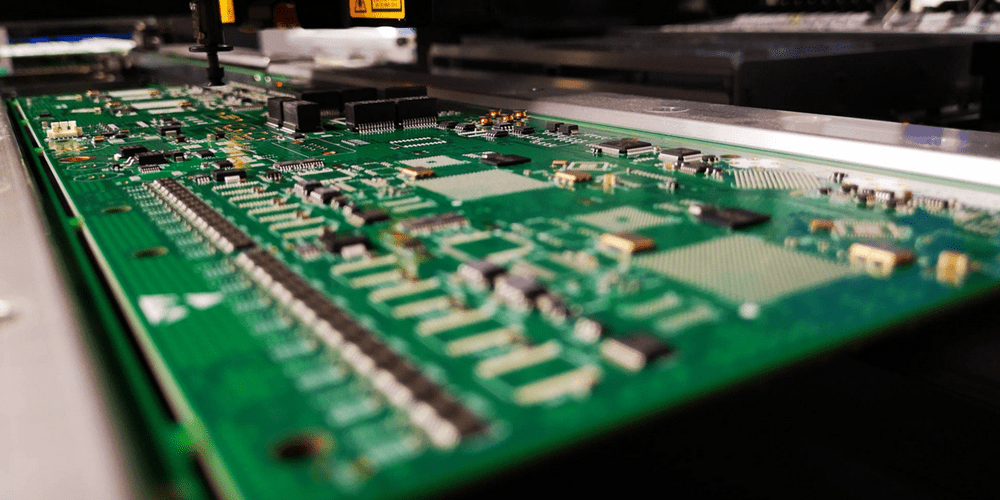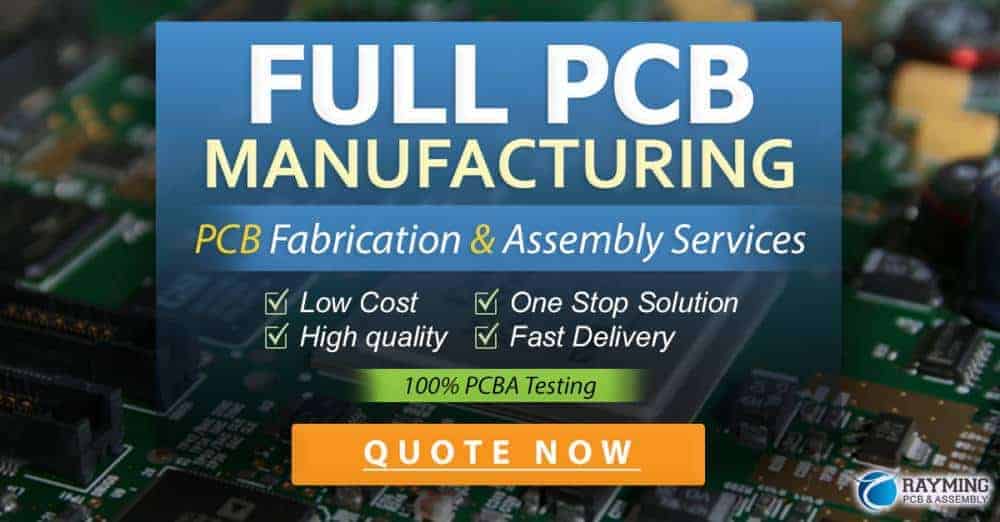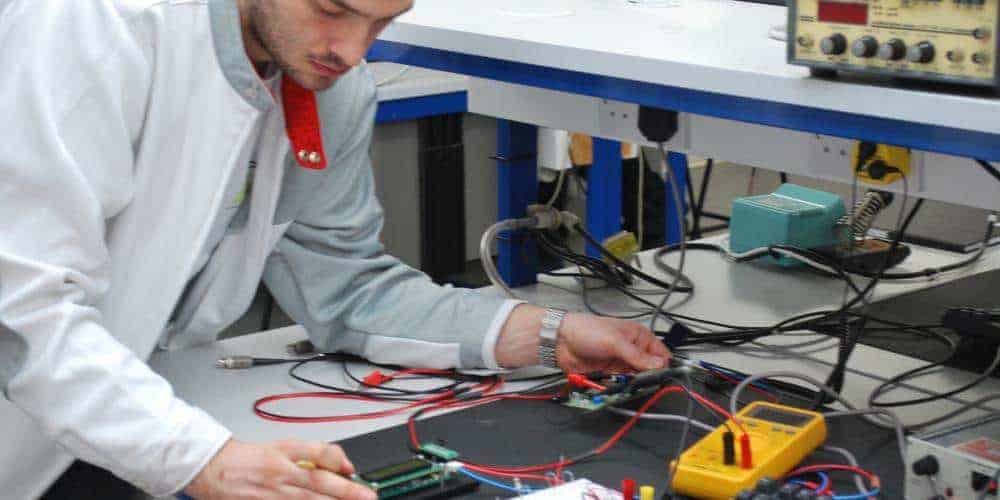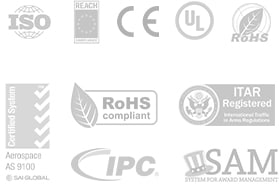A PCB fabrication company plays a crucial role in the production of electronic devices. Whether it’s a small circuit board for a household appliance or a complex board for a military application, a reliable PCB fabrication company is essential to ensure the quality and functionality of the end product.
The process of PCB fabrication involves several steps, including designing the circuit board, selecting the right materials, and manufacturing the board using specialized equipment. A good PCB fabrication company should have experience and expertise in each of these areas to produce high-quality boards that meet the specific requirements of their clients.
When choosing a PCB fabrication company, it’s important to consider factors such as their track record, certifications, and customer service. A reputable company should have a proven track record of delivering quality products on time and within budget. They should also have the necessary certifications, such as ISO 9001, to ensure that they follow industry standards and best practices. Finally, they should provide excellent customer service, including clear communication, timely updates, and responsive support.

What is a PCB Fabrication Company?
A PCB fabrication company is a business that specializes in the production of printed circuit boards (PCBs). PCBs are essential components of electronic devices, serving as the backbone of the electronic circuitry. The PCB fabrication process involves designing, prototyping, and manufacturing PCBs in various sizes and shapes, depending on the specific application.
The PCB fabrication process begins with the design of the circuit board layout using computer-aided design (CAD) software. The design is then transferred to the PCB fabrication company, where it is verified and optimized for manufacturing. Once the design is finalized, the company produces a prototype of the PCB, which is tested and refined until it meets the desired specifications.
PCB fabrication companies use various techniques and materials to manufacture PCBs, including etching, drilling, plating, and soldering. The fabrication process involves the use of specialized equipment, such as CNC machines, soldering stations, and inspection tools, to ensure the quality and accuracy of the final product.
PCB fabrication companies cater to a wide range of industries, including aerospace, automotive, medical, and telecommunications. They provide custom PCB solutions tailored to the specific needs of their clients, ensuring that their electronic devices function reliably and efficiently.
Key Factors to Consider When Choosing a PCB Fabrication Company
When choosing a PCB fabrication company, there are several key factors to consider. These factors will help you determine which company is best suited to meet your specific needs and requirements.
Experience and Expertise
One of the most important factors to consider when choosing a PCB fabrication company is their experience and expertise. Look for a company that has a proven track record of success in the industry. This will ensure that they have the necessary knowledge and skills to produce high-quality PCBs that meet your exact specifications.
Quality Control Processes
Another important factor to consider is the quality control processes that the company has in place. Look for a company that has a rigorous quality control program that includes multiple inspections and tests throughout the manufacturing process. This will help ensure that you receive PCBs that are free from defects and meet your quality standards.
Manufacturing Capabilities
It’s also important to consider the manufacturing capabilities of the PCB fabrication company. Look for a company that has state-of-the-art equipment and technology that can handle your specific requirements. This includes the ability to produce PCBs in different sizes, shapes, and materials.
Customer Support
Finally, consider the level of customer support that the PCB fabrication company provides. Look for a company that has a knowledgeable and responsive customer support team that can help answer any questions or concerns you may have. This will ensure that you receive the support you need throughout the entire manufacturing process.
In conclusion, when choosing a PCB fabrication company, consider their experience and expertise, quality control processes, manufacturing capabilities, and customer support. By taking these factors into account, you can ensure that you choose a company that can meet your specific needs and requirements.
PCB Fabrication Processes and Technologies

PCB fabrication involves several processes and technologies that are used to create printed circuit boards. The following are some of the commonly used processes and technologies in PCB fabrication:
1. Design and Layout
The first step in PCB fabrication is designing and laying out the circuit board. This process involves using specialized software to create the circuit board’s design, including the placement of components and the routing of traces.
2. Printing
After the design and layout stage, the next step is to print the design onto the copper-clad board. This process is done using a special printer that uses inkjet or laser technology to transfer the design onto the board.
3. Etching
Once the design is printed onto the board, the next step is to etch away the excess copper using a chemical solution. This process leaves behind the copper traces and pads that make up the circuit.
4. Drilling
After the etching process, the board is drilled to create holes for components and vias. The drilling process is done using specialized machines that can drill precise holes in the board.
5. Plating
After drilling, the board is plated to create a conductive surface for components and traces. This process involves depositing a thin layer of metal onto the board’s surface using an electroplating process.
6. Solder Mask
The final step in PCB fabrication is applying a solder mask to protect the board and prevent solder bridges. The solder mask is a thin layer of polymer that is applied to the board’s surface using a screen printing process.
In conclusion, PCB fabrication involves several processes and technologies that work together to create a functional and reliable circuit board. By understanding these processes and technologies, PCB designers and manufacturers can create high-quality circuit boards that meet their customers’ needs.
Types of PCBs Fabricated by PCB Fabrication Companies
PCB fabrication companies offer a wide range of printed circuit board types to meet the needs of various industries. Here are some of the most common PCB types fabricated by these companies:
Single-Sided PCBs
Single-sided PCBs are the simplest and most basic type of PCB. They consist of a single layer of conductive material, usually copper, on one side of an insulating substrate. These PCBs are commonly used in applications where cost is a major factor, such as toys, calculators, and other simple electronic devices.
Double-Sided PCBs
Double-sided PCBs have conductive material on both sides of the substrate, which allows for more complex circuit designs. These PCBs are commonly used in applications such as power supplies, amplifiers, and instrumentation.
Multilayer PCBs
Multilayer PCBs are made up of multiple layers of conductive material separated by insulating layers. They are used in complex electronic devices such as smartphones, computers, and medical equipment. The number of layers in a multilayer PCB can range from two to over 100, depending on the complexity of the circuit design.
Rigid PCBs
Rigid PCBs are the most common type of PCB and are used in a wide range of applications. They are made up of a rigid substrate, usually made of fiberglass or other composite materials, with a layer of conductive material on one or both sides.
Flexible PCBs
Flexible PCBs, also known as flex PCBs, are made of flexible materials such as polyimide or polyester. They are used in applications where flexibility is required, such as in wearable devices, medical equipment, and automotive electronics.
Rigid-Flex PCBs
Rigid-flex PCBs combine the advantages of rigid and flexible PCBs. They consist of rigid and flexible substrates that are fused together to form a single PCB. Rigid-flex PCBs are commonly used in applications where space is limited, such as in aerospace and military electronics.
In conclusion, PCB fabrication companies offer a wide range of PCB types to meet the needs of various industries. The type of PCB used depends on the complexity of the circuit design, the application requirements, and the budget.
Industries Served by PCB Fabrication Companies

PCB fabrication companies provide printed circuit boards that are essential components in various industries. The following are some of the industries served by PCB fabrication companies:
Automotive Industry
The automotive industry relies heavily on electronic systems, and PCBs are crucial components in these systems. PCBs are used in various automotive applications, including engine control units, anti-lock braking systems, airbag control systems, and multimedia systems.
Aerospace and Defense Industry
The aerospace and defense industry requires high-reliability PCBs that can withstand extreme environments and operate reliably in critical applications. PCBs are used in avionics, guidance systems, radar systems, and communication systems.
Medical Industry
The medical industry uses PCBs in various medical devices, including diagnostic equipment, imaging equipment, and monitoring equipment. PCBs used in the medical industry must meet strict safety and reliability standards.
Consumer Electronics Industry
The consumer electronics industry is one of the largest users of PCBs. PCBs are used in smartphones, tablets, laptops, televisions, and other electronic devices. PCB fabrication companies provide PCBs that are designed to meet the specific requirements of consumer electronics manufacturers.
Industrial and Automation Industry
The industrial and automation industry uses PCBs in various applications, including control systems, power supplies, and motor drives. PCBs used in industrial and automation applications must be designed to withstand harsh environments and operate reliably in demanding conditions.
In conclusion, PCB fabrication companies serve various industries by providing high-quality PCBs that meet the specific requirements of each industry.

